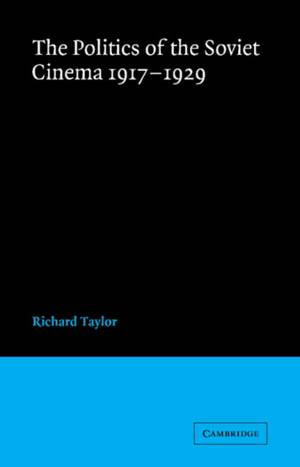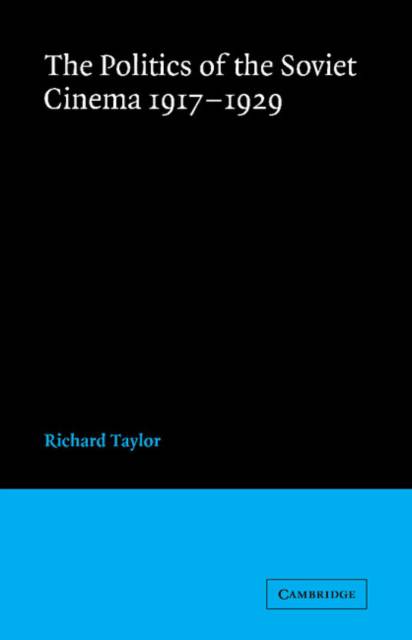
Bedankt voor het vertrouwen het afgelopen jaar! Om jou te bedanken bieden we GRATIS verzending (in België) aan op alles gedurende de hele maand januari.
- Afhalen na 1 uur in een winkel met voorraad
- In januari gratis thuislevering in België
- Ruim aanbod met 7 miljoen producten
Bedankt voor het vertrouwen het afgelopen jaar! Om jou te bedanken bieden we GRATIS verzending (in België) aan op alles gedurende de hele maand januari.
- Afhalen na 1 uur in een winkel met voorraad
- In januari gratis thuislevering in België
- Ruim aanbod met 7 miljoen producten
Zoeken
Omschrijving
Much has been written about Soviet literature and its political significance in the years following the October Revolution, but little has been written about the cinema in the same context. And yet in 1922 Lenin said, 'Of all the arts, for us the cinema is the most important.' What did he mean? This book looks at the Soviet cinema in its formative period from the political point of view, examining both the attitude of the authorities towards the cinema and the actual use to which the cinema was put. It demonstrates how, even at the height of the 'Golden Era of the Soviet film', the Bolsheviks repeatedly failed to organise the cinema successfully as an effective propaganda weapon. The book provides an illuminating background of the political history of the Soviet cinema in the twenties against which its most famous films can be re-examined.
Specificaties
Betrokkenen
- Auteur(s):
- Uitgeverij:
Inhoud
- Aantal bladzijden:
- 232
- Taal:
- Engels
- Reeks:
Eigenschappen
- Productcode (EAN):
- 9780521088558
- Verschijningsdatum:
- 30/10/2008
- Uitvoering:
- Paperback
- Formaat:
- Trade paperback (VS)
- Afmetingen:
- 140 mm x 216 mm
- Gewicht:
- 299 g

Alleen bij Standaard Boekhandel
+ 129 punten op je klantenkaart van Standaard Boekhandel
Beoordelingen
We publiceren alleen reviews die voldoen aan de voorwaarden voor reviews. Bekijk onze voorwaarden voor reviews.









